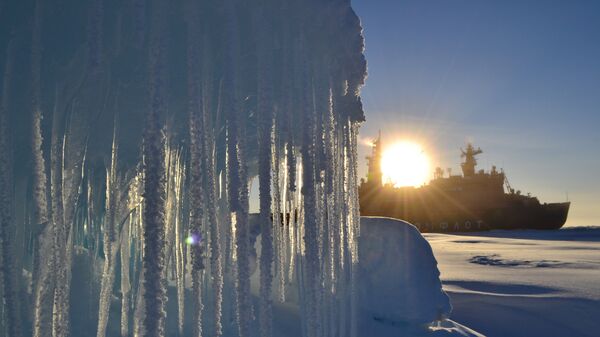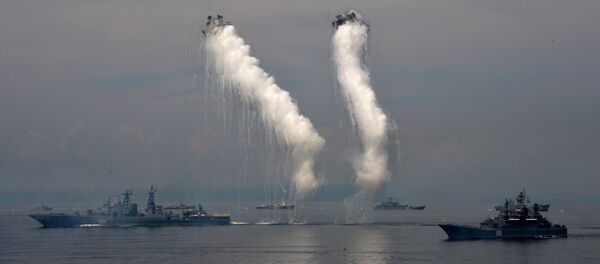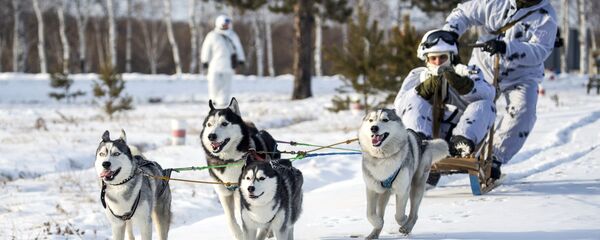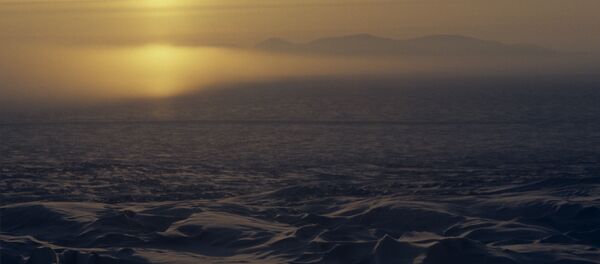The Arctic region that has already become the focus of worldwide attention may soon turn into an apple of discord between NATO and Russia, Mike Scrafton, a retired Australian senior defense official, suggests in his op-ed for The National Interest.
Following the collapse of the USSR "Russia has lost its dominant positions in the Baltic and Black seas and its secure access to the Mediterranean and the Atlantic," Scrafton points out.
"In addition, the maritime approach to St. Petersburg, its second city, is threatened by NATO. Russian access to the Mediterranean and the Atlantic is now susceptible to blockade by NATO. Access to the Atlantic through the Barents Sea for the Russian Northern Fleet at Severomorsk is also vulnerable to encirclement and interdiction by NATO," the former defense official argues.
According to the expert, Crimea's reunification with Russia in 2014 has become a signal of Russia's willingness to protect its "remaining strategic maritime assets."
However, NATO nations remain Russia's primary geopolitical rivals in the Arctic Ocean, he notes, stressing that the Arctic Council — the international governance mechanism — "is dominated by NATO members." The contenders pursue each their own strategic and resource interests in the region.
"While NATO members bordering the Arctic Ocean-the US, Canada, Denmark, and Norway-are also pursuing their own national claims, Russia and NATO still see each other as their greatest security threat," he believes.
Meanwhile, this month Russia's Northern and Pacific Fleet warship took part in tactical naval drills in the Arctic region, near the New Siberian Islands, spokesman for the Russian Navy Сapt. 1st Rank Igor Dygalo reported on September 21.
The naval exercises come as a part of Russia's increased military, trade and exploration activities in the Arctic region, aimed at developing the region's infrastructure, protecting offshore mineral projects and developing the Northern Sea Route linking Europe to Asia.
During his September visit to the Primorye Territory Russia President Vladimir Putin stressed the importance of accelerating the construction of Russian vessels for the Northern Sea Route.
"Of course, we will primarily build vessels for domestic use, for offshore mineral projects in the Russian Far East and Arctic regions and for developing the Northern Sea Route as a global transport route. We know very well that not only Russia but also its neighbors have big plans for this route, which is the most efficient route for transporting cargo between Europe and Asia," President Putin said.
According to Rustam Tankayev, a leading expert at the Russian Union of Oil and Gas Industrialists, "20 percent of Russia's entire hydrocarbon raw materials will be exported through the Arctic in ten years from now."
In response to ongoing speculations about the Arctic region's transforming into a geopolitical hotbed Russian Security Council Secretary Nikolai Patrushev noted in the course of the Arctic Council meeting in late August that those who predict an international standoff are deeply mistaken.
"I suppose that through the free exchange of opinions we will be able to conclusively prove the falsity of conclusions of some political and academic figures, according to which in the 21st century the Arctic will become the arena of a new 'great game,' a fierce military-political, economic and ideological confrontation for the natural wealth of this unique region," Patrushev stressed.




